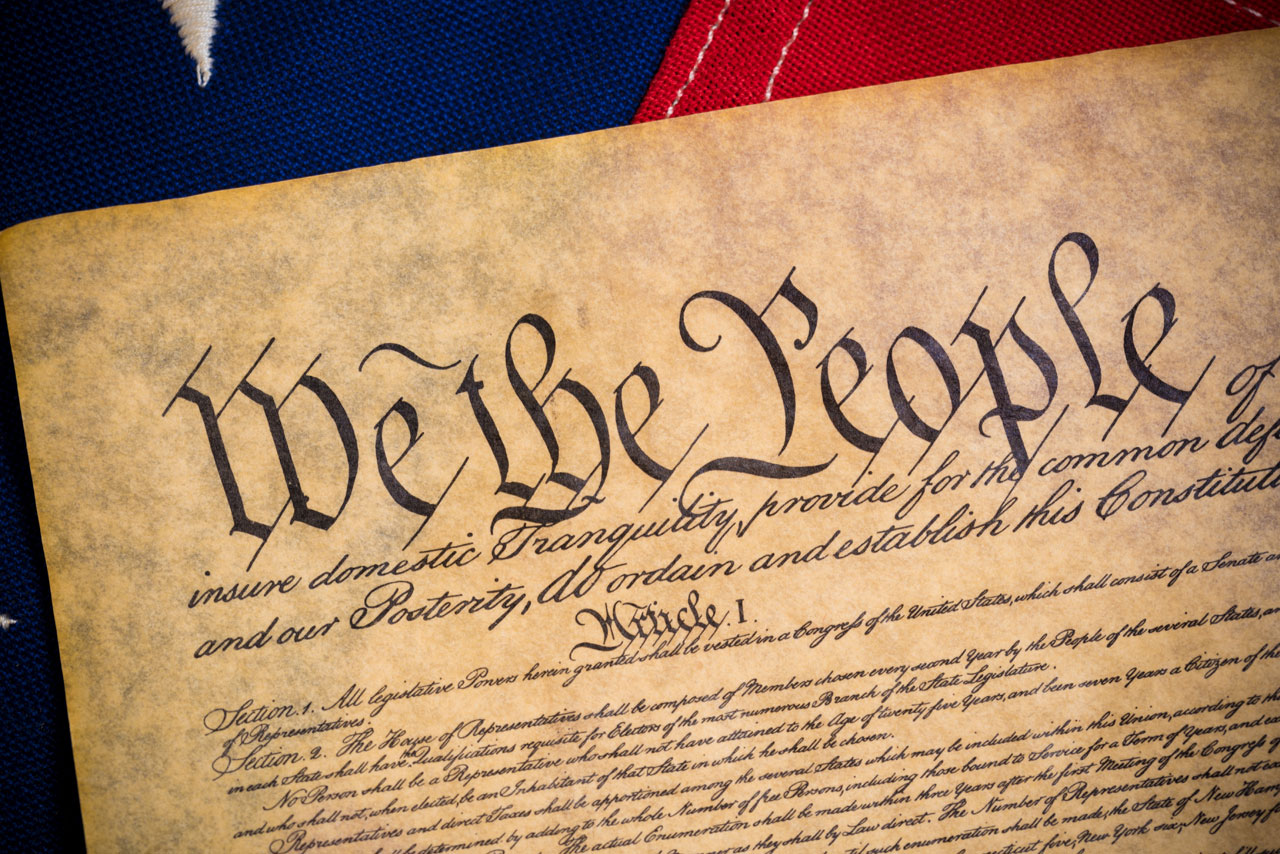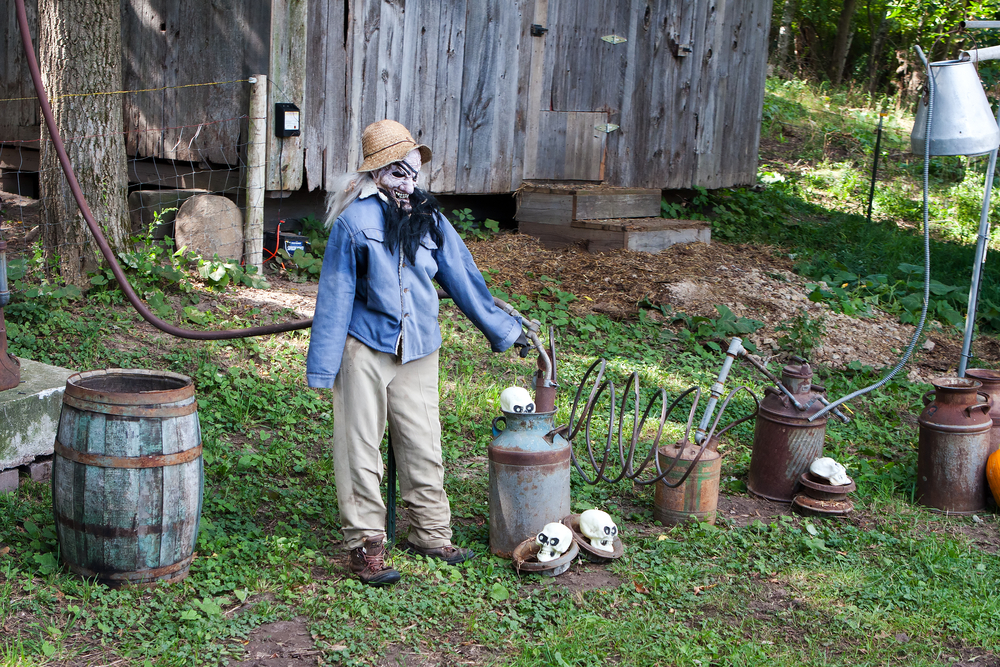
by Brian Hobbs | Nov 26, 2015
Thanksgiving — that great American holiday, brings families and friends together each year who may not otherwise get together. Most Americans can relax, and be grateful to God for the food and fellowship. But what happens when controversial topics come up?
These topics are sometimes personal, like whether you approve or disapprove of the new tattoo that “Aunt Sally” got. Most often, the controversial topics are more general about areas of life over which we have little direct control on a daily basis, such as sports or politics.
If “conversation is the spice of life,” I want to remind us—myself included—of these words of wisdom that come from the Bible to keep a balanced blend of “spices.”
1. Be kind.
“Be kind to one another, tenderhearted, forgiving one another, as God in Christ forgave you.” Eph. 4:32
Any person can be nice, but very few are truly kind. When you come to points of disagreement, maintain an attitude of noticeable kindness.
2. Don’t pick unnecessary fights.
“If possible, so far as it depends on you, be at peace with all men.” Rom. 12:18
When it comes to being faithful witnesses, Christians often have to speak up in uncomfortable moments. Yet as Believers, go out of your way to avoid divisive fights that are not necessary.
3. Don’t be afraid to lose
“Show family affection to one another with brotherly love. Outdo one another in showing honor.” Rom. 12:10
Love does not have to win every argument but does seek to win every person. Love knows when to speak and when to listen, as well as how to honor others.
4. Be Christlike
“And the Word became flesh, and dwelt among us (and we beheld his glory, glory as of the only begotten from the Father), full of grace and truth.” John 1:14
Jesus is perfect in every way and that includes speech. We ought to exemplify His gracious and truth-filled speech. If asked your opinion on a topic, don’t forget to leave out truth and don’t forget to be gracious.
So this Thanksgiving, when others are gearing up for a rowdy family gathering, keep in mind these Bible verses with your table talk. That, in the end, may be the most winning argument of all.

by Brian Hobbs | Nov 24, 2015
“Congress shall make no law respecting an establishment of religion, or prohibiting the free exercise thereof; or abridging the freedom of speech, or of the press; or the right of the people peaceably to assemble, and to petition the Government for a redress of grievances.” – The First Amendment of the United States Constitution
If the U.S. Constitution is a “living and breathing document,” one of its key parts—the First Amendment—is gasping for breath.
When we hear on TV about efforts to create “safe spaces” on college campuses; when we hear about pastors’ sermons being subpoenaed; when we hear about “hate speech” and “hate crimes” and see the collision between so-called “sexual liberty” and religious liberty, we know that the principles of the First Amendment are being challenged in new ways.
The Founders of our country made the First Amendment first for a reason. President Thomas Jefferson wrote to the Danbury Baptists to assure them of their religious liberty and went so far to say, “Were it left to me to decide whether we should have a government without newspapers, or newspapers without a government, I should not hesitate a moment to prefer the latter.”
If Jefferson were alive today to see what passes for newspapers, he might change that judgment. Be that as it may, this shows just how strongly the Founders viewed the freedom of press.
It is not, however, direct frontal assaults to the First Amendment that pose the greatest risk. It is subtle challenges to the freedoms in every day of life. It is college students demanding the right never to be offended. It is government bureaucrats watching churches like a hawk. It is public atheists like Richard Dawkins dreaming aloud of a day in which tax-exempt status for churches is gone that we see the First Amendment at risk.
These risks do not, however, always come from the government. Indeed, it is often business interests who silence free speech. Think of the athletes and sports leaders who have lost their public platform entirely for making a politically incorrect statement.
What is the answer to this? Christians must learn not to count on the Constitution and favorable public opinion to share the Gospel. There might come a day in which churches lose their tax-exempt status. We would quickly learn who is giving to the church for a tax break and who is giving out of conviction.
One British statesman said, “The price of liberty is eternal vigilance.” When we see on TV news that religious liberty is a threat. Don’t just scream at the TV or rant on Facebook. Instead, pray. Instead, wisely exercise your liberty to share the Gospel and live out the Christian life. If small acts can take away our freedom, small acts can restore it.

by Brian Hobbs | Nov 18, 2015
Image: Volodymyr Borodin / Shutterstock.com
November is a great time for fans of sports and politics. In sports, not only do you get the World Series and the start of the NBA season, you get high school, college and pro football in full swing. In politics, you get full campaign season in odd-numbered years and actual voting in even-numbered years.
These days, though, it seems like more people are treating politics like sports. Very few grown-ups actually play sports, they are simply spectators, commenting, criticizing and cheering. Fantasy football has only enhanced the spectator factor and given us the illusion of involvement.
So too has our political engagement gone. Many of us vote but few of us do the hard work of civic engagement. We spend hours watching cable TV news about politics that are hard to have an impact on, such as what goes on in D.C. or abroad, and very few hours staying connected to what we can control near us.
This unhealthy dynamic is crystal clear in the issues of confronting ISIS and addressing the refugees coming from Syria. The two sides are talking past one another, with brash Facebook posts, as if that is civic engagement. One side of the debate calls the other soft on war and “bleeding hearts,” while the other calls their debate opponents war-and-fear mongers. With issues like Syria, these are complex issues that require the most careful thought and knowledge.
Personally, I like my leaders to err on the side of prudence and carve a path that combines the best of our impulse to love our neighbors but also maintain order and protect the weak. I like my leaders to be informed by history and careful study. And time will tell if evil agents of ISIS can be stopped and the Syrian refugee crisis abated.
All the while, what will not help is an atmosphere of “fantasy-football” politics in which people with little to no decision-making power shout at one another and their televisions. The next time you are tempted to get sucked into an online raging debate on hot-button and important issues like this, step back and do these three things:
- Pause—In our desire to react, we say things we don’t mean. Or we say them in ways we don’t mean to. Instead of instantly hitting reply, take time to think through what you will ay.
- Pray—Christians should be a people marked by prayer. To pray to God for help, when ISIS killers are unleashing their destruction, is to do something more effective than just to shake your fist at the talking heads on TV.
- Say Less–Lincoln was attributed to say, “Better to remain silent and be thought a fool than to speak out and remove all doubt.” When it comes to online debate, this is doubly true.
By doing these three actions, we will stand a better chance to become a wise people and exercise the freedom we have been given by God and our forefathers.

by Brian Hobbs | Oct 29, 2015
The late OU professor J. Rufus Fears pointed out that our day and age is one of the very few to have an obsession with spectator sports. Like citizens of the Roman Empire of the Caesars, who gloried in gladiator games, we love our spectator sports. The more violent, the better.
Dr. Fears points out that the Romans of the Republic and “the boys who fought at Gettysburg” did not watch spectator sports or feed on the “vicarious violence” found in video games. The Roman republicans and Civil War men knew their share of violence and masculinity. But the difference was, it was not a vicarious or a spectator violence.
Now I have not seen the “Hunger Games” movies or read the books, but I understand the author parodies and parades this vicarious blood-lust we have today. We are raising an entire generation that is far removed from real-life violent acts, like hunting an animal to harvest the food, or fighting in a just war, or simply catching a fish and cleaning it. Yet every day, on screens and in sports, we feast on violence vicariously.
Now, I am no pacifist. Far from it, I believe strongly in weapon ownership and that “there is a time for war and a time for peace” (Ecclesiastes 3:8). I am, however, concerned that we are losing a part of our souls by the mindless embrace of vicarious violence.
Building on this, just think about what sports are popular. We have gone from noble sports like fencing or boxing to all-out, bare-fisted cage fighting. We have taken rugby and football and turned to extreme sports. In short, our sports have turned from civilized to sheer brute force.
Of course, I am a huge sports fan and take in more than my share of spectator sports. At the same time, I try also to participate in sports and athletics, not just view them. As for weapons, I want to know how to safely use swords and guns, not just virtual ones on the screen.
Today, Christians can actively find ways to live life in the bodies the Lord gave us, not just live attached to digital screens. Whether it is video games, or fantasy football, or spectator sports, don’t live your life exclusively as a second-hander. Get out of the grandstands and find what the Lord has for you to do this day. That, in the end, is the most fulfilling activity of all.

by Brian Hobbs | Oct 6, 2015
Several Octobers ago, my family and I were out of town, where we saw a local pumpkin patch. The day there was going great; that is, until we got interested in the hayride.
Told by the slick salesman of the hayride tickets that it was a “family experience we would never forget” and that it went through their neat kids village, we bought the tickets and hopped on board.
What the salesman failed to tell us was that this “family-oriented village” display had been decorated for a teen nightly fright fest.
I remember, among the quaint cottage looking houses, scenes of ghosts and ghouls. Even worse, there were graphic scenes of severed heads, limbs and bloody body parts.
We did the best we could to cover our kids eyes. My wife, at the end, demanded our money back.
Now this was a private operation, with a twisted but simulated presentation. Yet it closely resembles what we now know about Planned Parenthood.
Due to videos exposing Planned Parenthood, we know there are real body parts from aborted babies being severed and sold by this group, which always falsely advertises itself as a pro-family.
Think about it: these are not plastic body parts painted red but are the parts of real boys and girls. What is worse, our tax dollars are paying a large portion of this bloody business’ bottom line.
Many, like we did at the hayride, are hiding their eyes from this truth, but for all the wrong reasons.
I, for one, pray the nation will open its eyes to what is really going on. And I pray that more people, including in Congress, will say the words to Planned Parenthood that the salesman heard: “We want our money back!”




